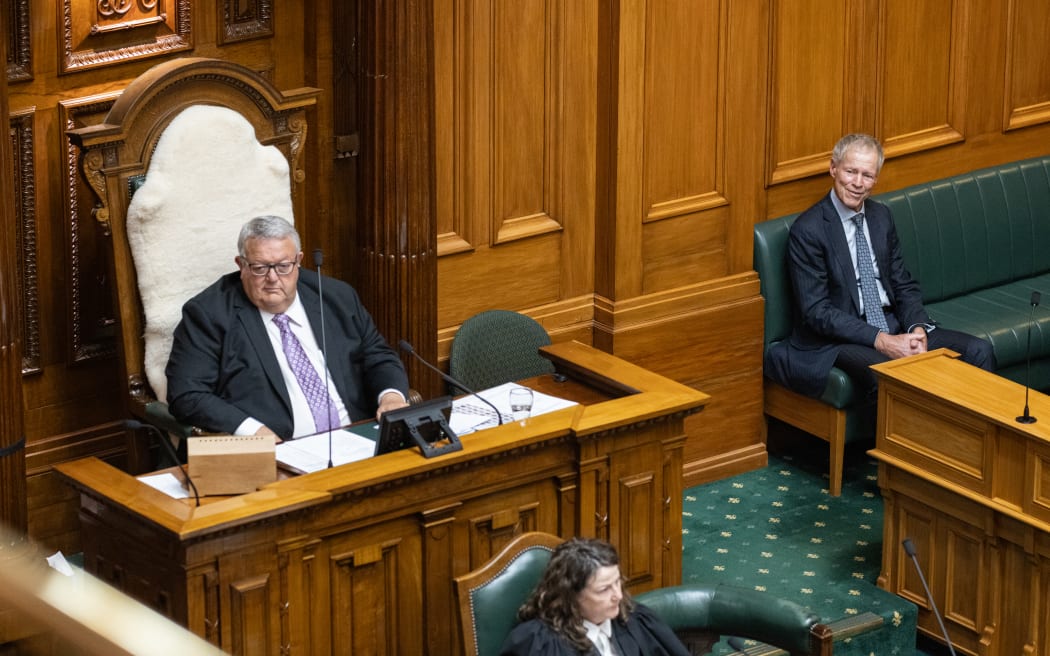In this weekly edition of The House, we look at thresholds, or how things make or don’t make the cut, in two aspects of the Parliament system.

Former Speaker Lockwood Smith visits the debating chamber on Gerry Brownlee's first day in the Chair. Photo: VNP / Phil Smith
Urgent debates
Urgent debates are much requested by MPs of the Speaker, but seldom approved. An unsuccessful ruling this week on a request by Labour for an Urgent Debate on disability funding, offered no signal that they won’t be even less frequent in future.
Parliament’s rules provide that the Speaker can allow for an Urgent Debate to take place if it meets three criteria: It must be a debate on “a particular case of recent occurrence”, it must be a matter of administrative or ministerial responsibility, and it must “require the immediate attention of the House and the Government.”
Over the previous five parliaments only 17.8% of requests were allowed. So far this Parliament, five urgent debates have been requested – and five have been denied, including one this week.
A full report on this story from earlier in the week can be read here.
List cusp
The other matter about thresholds relates to list MPs trying to make it into Parliament on the cusp of their party’s vote result in a fluid post-election configuration, those who become a virtual prisoner to the vagaries of MMP.
Among the new and re-elected MPs who got into Parliament after October’s general election, there are at least two who had to first endure a period of waiting and uncertainty.
On election night, Labour MP Tracey McLellan lost her Banks Peninsula electorate seat in a tight race. Initially it seemed she would get in anyway, via the Labour party list; however other results changed as the special votes came in, so she was out. She then teetered on the edge of Parliament for almost three months, until Rino Tirakatene retired and she moved up the list and back into Parliament to replace him.
Celia Wade-Brown of the Green Party knows well about hanging around while waiting for special votes to come. After all, that’s how she became Mayor of Wellington in 2010. Although she didn’t quite get into Parliament after special votes were processed following October’s election, her opportunity came in January, and she found out while mountain-biking on Makara Peak.
A full report on this story from earlier in the week can be read here.

